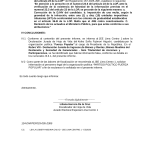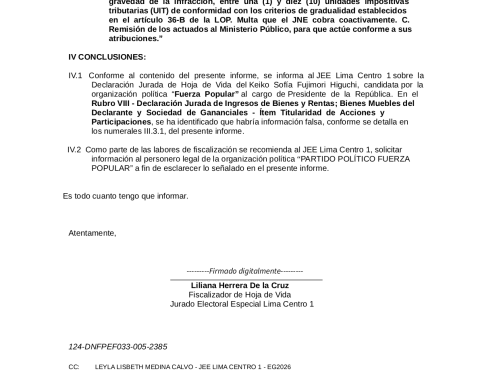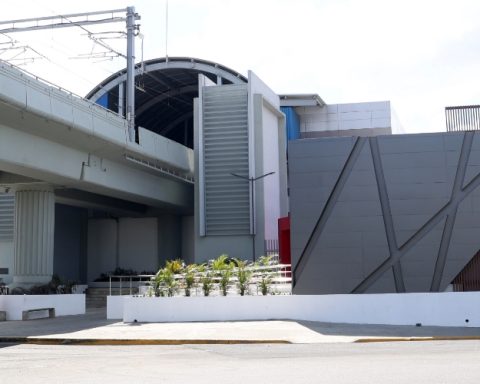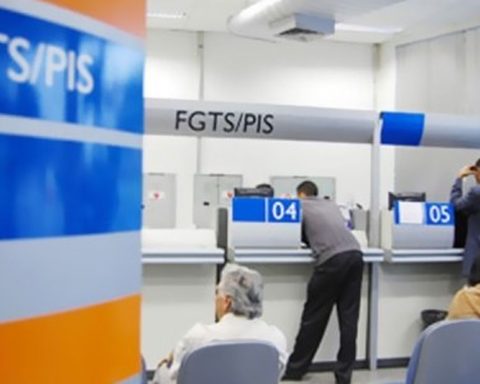Despite the announcements made by the governments of Mexico and the United States about a new collaboration framework in security matters to replace the Mérida Initiative, the only thing that has been up to now is an intention, called Bicentennial Understandingsince it has not been approved by the congresses of both countries, there is no action plan, it is not known what resources it will have, nor when it can begin to be implemented.
In addition, it is not clear how government interventions will be designed and whether they will have the indicators to assess their design, performance and results, particularly on the Mexican side, where most of the programs launched by the current Mexican government, without planning , nor management indicators, raised specialists.
As was duly reported, on January 31, Mexico and the United States presented three goals, eleven areas of coordination, 26 joint objectives and 102 cooperation actions jointly approved to underpin the Bicentennial Understanding instrument.
Francisco Rivas, director of the National Citizen Observatory (ONC) commented that what was presented by the governments of Mexico and the United States last Monday is not really an action plan, but an expansion of the proposals that had already been made public, although with a little more information about what they intend to do.
They are an inspiration of topics that does not allow to have an idea of how they intend to operate and if it is already perfectly clear what is meant by each of the topics in both countries, he explained.
He recalled that this new instrument must be approved by both the United States Congress and that of Mexico and, above all, define budgets.
In addition, it requires establishing the responsibilities of each of the institutions in charge of implementing it, as well as establishing the indicators that allow printing a logic of public policy and following up on the goals and objectives set.
In this sense, he recalled that one of the main areas of opportunity for government interventions in Mexico is precisely the issue of performance and results indicators.
“We are, rather, a country that focuses its efforts a bit by raising its finger in the air to see how we are going to do things, rather than having specific clarity on how the programs are going to be implemented and evaluated,” he added. .
He said that if there is not a good system of indicators, what generally happens with Mexican government interventions will happen: we believe that we are making progress but we do not have the elements to be able to guarantee it.
In this sense, he said that if we were to ask at this time whether the Merida Initiative worked or not, there is really no way to say it because there are no elements to support any assertion.
For these arguments, he considered that in order to carry out an analysis of the viability of the Bicentennial Understanding, it could be done until the program has already been approved and elements are available for it.
He said that with what is known about the binational instrument so far, for example in matters of cross-border crime prevention, safe modes of travel and trade, and reduce illicit arms trafficking or reduce the capacity of criminal organizations and their international supply chains, what immediately arises is the question: How are the objectives going to be achieved?
In this sense, he said that many questions arise at this time, especially if the federal government’s “supposed” strategy of “hugs, not bullets” is taken into account. For example, how is it possible to reduce the power of criminals if there is no clarity about what “hugs and not bullets” means, he questioned.
He stressed that the fight against crime is not a matter of “getting excited”, but of clear projects and ways of dealing with a problem that we do not see so easily in the tradition of our public administration.
It remains to be seen how relevant it is for Biden: José María Ramos
For his part, José María Ramos García, professor-researcher, assigned to the Department of Public Administration Studies of El Colegio de la Frontera Nortesaid that it is an interesting, ambitious, general proposal in which different issues of the bilateral security agenda are addressed.
However, he stressed, the important thing is to see if it will be a priority for the United States, like the issue of migration, climate changeespecially in the context of the upcoming electoral process in that nation.
He mentioned that only the issue of access to weapons will be a sensitive issue because there is a polarization on the matter in that nation.
He recalled that the United States announced the instrument in April 2021 and practically did not resume it for the rest of the year.
The academic stated that, only in terms of combating the drug trafficWhat needs to be seen is whether it is going to be a priority on the United States’ agenda or whether it is going to charge everything to Mexico, as it has traditionally been until now, since that nation has not reduced its high consumption of drugs.
He stressed that what has been proposed so far would exceed the Merida Initiativewhich addressed aspects such as training and collaboration, but did not reduce the structural factors that cause the problems that concern both countries, such as the increase in synthetic drug trafficking.
He also emphasized the need for mechanisms to monitor government interventions and what will be the incentives for the authorities of the three levels of government to work to achieve the objectives, especially since now the problems are more complex than they were before. 10 years.
Defines the relationship between the two countries in terms of security: Roberto Zepeda Martínez
In turn, Roberto Zepeda Martínez, an academic from the UNAM North American Research Center, commented that it is very important to have an instrument like this because it defines the relationship between the two countries in terms of security, human trafficking, among others.
He said that what should prevail is collaboration between the two countries.
At the beginning it is a good thing because it is supposed that the strategy is being perfected, you are learning from past mistakes.
From his perspective, he said that it is relevant that the issue of health is now included and the issue of “protecting our people” is raised as the first point, which implies a paradigm shift, because what is sought is to promote a more focused security. in people.
It also highlights the issue of health, particularly in the area of drugs.
The academic stressed that the viability of the Bicentennial Understanding depends on the will of both countries and the resources that are applied, as well as bilateral cooperation.
He commented that the institutional strengthening of Mexico is relevant for the success of the instrument, since it is an area where there are important challenges, despite the fact that it is an area that even the Mérida Initiative dealt with.
Encouraging that it opens up untreated areas in the Mérida Initiative, says David Pérez Tejeda
For his part, David Pérez Tejeda, director of Binational Affairs of the Government of Baja California He commented that for a border state such as that entity, it is very important to have solid security mechanisms such as those contemplated in this initiative.
We welcome that it includes a much more diverse spectrum in terms of the issues it touches on and because it is updated in some areas such as cybersecurity, he said.
The state official stressed that it is very important for border states to work together to solve public problems such as migrant smuggling and human trafficking.
He said that cities like Tijuana are currently experiencing a migration crisis generated by caravans and the arrival of people to this border in small but constant groups, with the intention of entering the United States.
This coupled with the expulsion of migrants from the neighboring country to the north, both Mexicans and other nationalities who live in a vulnerable situation on the border.
He said that to solve these and other problems that exist on the border, the involvement of the federal authorities of both countries is very important, as well as international cooperation in a fluid manner, for example to share information.
Bicentennial Understanding strengthens the binational cooperation work already carried out and we believe that it includes many aspects that will help solve public problems in depth, he remarked.
Pérez Tejeda said that the agreement comes at an opportune time for the border because it currently needs the support of the federal governments of both nations to solve the problems it faces. Now, the next step is to see how and with what, he remarked.
















